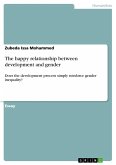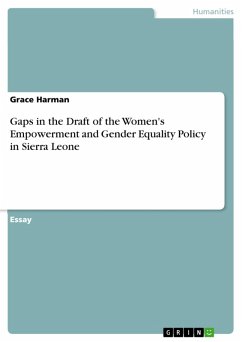Essay from the year 2024 in the subject Gender Studies, University of Latvia (Faculty of Social Sciences), course: Politics and Gender, language: English, abstract: This essay takes a look at how the European Union deals with questions of gender equality and especially focuses on the European Commission president Ursula von der Leyen with her 2019 - 2024 strategy to fight gender inequality. The EU as a supranational political and economic union has achieved many positive things for its citizens. The Schengen Area formed in 1985 has erased border controls, the Euro has made it a lot easier to pay in the EU by getting rid of most of the member states' old currencies, and the Erasmus-program makes it possible to study abroad in other EU countries. When it comes to concrete societal impacts, the union also has different topics on its agenda. It not only aims at strengthening democratic participation, but it also pushes for more gender equality in all of its institutions. The most current data is provided by the Global Gender Gap Report 2023. The paper released by the World Economic Forum lists 146 countries and ten out of the first 25 are members of the EU. The EU itself circulates around the upper half of its member states - at least following the EU's own Gender Equality Index. The report from 2023 states that the EU-average progress in gender equality is 70.2 out of 100 - with 11 member states doing better than the average and 16 ones doing less good.
Dieser Download kann aus rechtlichen Gründen nur mit Rechnungsadresse in A, B, BG, CY, CZ, D, DK, EW, E, FIN, F, GR, HR, H, IRL, I, LT, L, LR, M, NL, PL, P, R, S, SLO, SK ausgeliefert werden.









